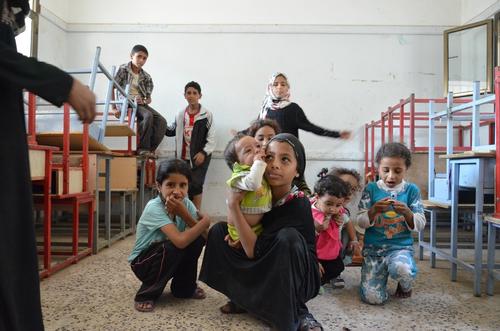Sana’a, July 17th 2014 – In response to the increasing needs of the Internally Displaced Persons (IDPs) leaving Amran after the recent conflict, Médecins Sans Frontières (MSF) has, in coordination with the Executive Unit for Managing IDPs’ Camps, supported 52 families located in Al-Najah School in the Yemen capital, Sana’a.
Primary support
The primary support was through the distribution of hygiene kits, non-food items and mattresses; repairing nine bathrooms; providing water; and installing lights to help improve living conditions.
General medical consultations
MSF will also evaluate the IDPs’ needs for general medical consultations and psychological support. “This humanitarian situation needed an urgent response,” says Hemidan Mohammad, MSF representative in Yemen. “The number of IDPs in the school was on the rise. Most of the IDPs are children who are in shock after leaving their homes due to the conflict.”
Supporting IDPs in Amran
Meanwhile, MSF is also following and supporting IDPs within Amran Governorate. Non-food items, hygiene kits, water and food are being distributed to 64 IDPs identified in Khamer.
MSF will also visit Kharif and Raydah, where at least 200 families have been identified as IDPs, and will ensure the provision of support according to the needs witnessed.
MSF is an independently funded, non-profit, humanitarian medical organization, acting by virtue of universal medical ethics and International Humanitarian Law. MSF has been working in Yemen since 1986 and continuously since 2007. MSF does not accept funding from any government for its work in Yemen; it relies solely on private donations.MSF provides medical andsurgical care in Sana’a, Amran, Al-Dhale’, Aden and Abyan governorates.
MSF also provides emergency medical aid in around 70 countries worldwide to populations that suffer from the effects of armed conflict, epidemics, malnutrition, exclusion from health care, or natural disasters. MSF provides assistance regardless of people’s backgrounds.



